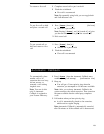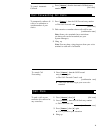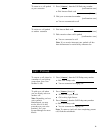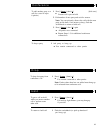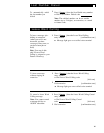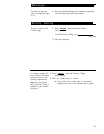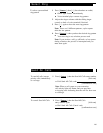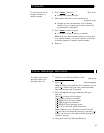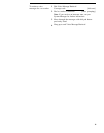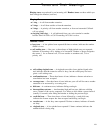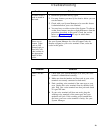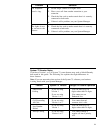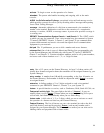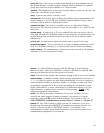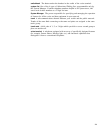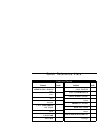
Tones and Their Meanings
Ringing tones are produced by an incoming call. Handset tones are those which you
hear through the handset (receiver).
Ringing Tones
●
●
●
●
1 ring — A call from another extension.
2 rings — A call from outside or from the attendant.
3 rings — A priority call from another extension, or from an Automatic Callback
call you placed.
ring-ping (half ring)
— A call redirected from your voice terminal to another
because Send All Calls or Call Forwarding All Calls is active.
Handset Tones
busy tone — A low-pitched tone repeated 60 times a minute; indicates the number
dialed is in use.
call waiting tone — One, two, or three beeps of high-pitched tone, not repeated;
indicates an incoming call is waiting to be answered. Number of beeps designates
the source: 1 for an internal call, 2 for an outside or attendant call, 3 for a
priority call.
●
●
●
●
●
●
●
●
●
●
call waiting ringback tone — A ringback tone with a lower-pitched signal at the
end; indicates that the extension called is busy, but the called party has been
given a call waiting tone.
confirmation tone — Three short bursts of tone; indicates a feature activation or
cancellation has been accepted.
coverage tone — One short burst of tone; indicates your call will be sent to another
extension to be answered by a covering user.
dial tone – A continuous tone; indicates dialing can begin.
intercept/time-out tone — An alternating high and low tone; indicates a dialing
error, a denial of the service requested, or a failure to dial within a preset interval
(usually 10 seconds) after lifting the handset or dialing the previous digit.
recall dial tone
— Three short bursts of tone followed by a steady dial tone;
indicates the feature request has been accepted and dialing can begin.
reorder tone — A fast busy tone repeated 120 times a minute; indicates all trunks
are busy.
ringback tone — A low-pitched tone repeated 15 times a minute; indicates the
number dialed is being rung.
19



